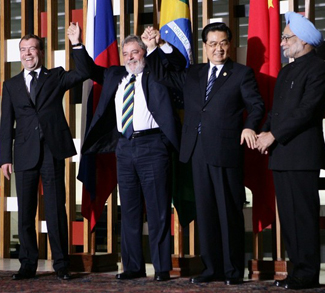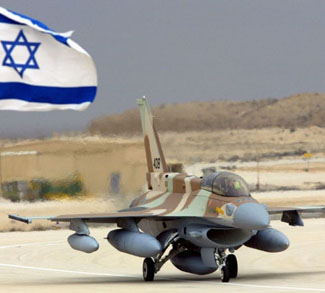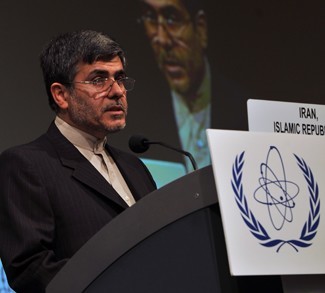FORECAST
The UN Security Council imposed a new set of sanctions against Iran on March 3. The sanctions increase travel and financial restrictions against named individuals and companies.
The official purpose of the sanctions are to prevent Iran from developing nuclear weapons and they come in the wake of UN sanctions implemented in March 2007 and December 2006.
Iran maintains that it needs nuclear technology to generate electricity. Iran has limited domestic oil refinement capacity and is consequently dependent on other countries for much of its energy needs.
Notably, China and Russia, who have been providing military and diplomatic support for Iran in opposition to US military ambitions, agreed to the sanctions.
Russian, which has been providing Uranium to Iran for its nuclear power program, was quick to note that the sanctions rule out the use of Military force against Iran.
It is uncertain what specifically convinced China and Russia to sign on to the new sanctions but the limited nature of the sanctions and an underlying desire by both countries that Iran not successfully develop a nuclear deterrent likely played a role.
Continued discussion of Iranian procurement of an advanced Russian anti-aircraft system and China’s interest in extending the Iran-Pakistan gas pipeline to its territory suggest that, despite the new sanctions, there has not been a fundamental shift in allegiances.
In addition to the UN sanctions the United States has been working to alienate and weaken Iran by imposing its own financial sanctions and encouraging other countries, including those in the EU, to follow suit.
Threatening to freeze the assets of any bank that does business with Iran would effectively isolate Iran from the international banking system. This could have devastating effects on the Iranian economy. To help mitigate this threat Iran has been working to set up its own investment banks and commodities exchange.
The United States has been implementing and promoting the use of sanctions against Iran since the 1979 Iranian Islamic Revolution when the CIA / MI6 installed Shah of Iran was ousted, the monarchy abolished, and a Theocratic Republic created.
Mohammed Mossadeq was Prime Minister of Iran until 1953 when the CIA and MI6 ousted him for nationalizing a portion of the country’s oil in an operation codenamed ‘Ajax’. The Shah of Iran was inserted in his place and, with US military support, went on to abolish the multi-party system of governance and use widespread secret imprisonment and torture to retain power.
SUMMARY OF EVENTS: February 25 – March 3, 2008
WORLD
Wheat prices have hit record levels as supplies dwindle, raising concerns about growing food inflation.
By the end of this year one half of the world’s population will be living in cities for the first time in human history, the United Nations said in a new report released on Tuesday.
NORTH AMERICA
United States
The dollar plunged Wednesday to another record Euro low thanks to a stream of negative US data, while the tumbling greenback helped crude oil and gold prices hit historic highs.
The number of homes facing foreclosure jumped 57 percent in January compared to a year ago, with lenders increasingly forced to take possession of homes they couldn’t unload at auctions, a mortgage research firm said Monday.
The Bank of America has circulated a confidential proposal to members of Congress requesting a multi-Billion dollar bailout of distressed mortgages held by the bank.
Alan Greenspan, the former chairman of the US Federal Reserve, has said that inflation rates in Gulf states, which are reaching near record levels, would fall “significantly” if oil producers dropped their US dollar pegs.
The Federal Reserve announced Friday that it will auction another $60 billion in March as it continues to combat the effects of a severe credit crisis. It repeated a pledge to keep holding the auctions “for as long as necessary.”
Canada
A journalist for a Canadian TV network who has been held for four months without being charged has been designated an unlawful enemy combatant by the US military.
WESTERN EUROPE
The Euro has surged to an all-time high of $1.51 against the dollar, prompting bitter complaints from European industry and setting off a sharp sell-off in sovereign bonds from Southern States deemed least able to withstand a super-strong currency.
EASTERN EUROPE
Russia
Russia, the world’s second-largest oil-exporting nation after Saudi Arabia, has been quietly preparing to switch trading Russian Ural Blend oil, the country’s primary export, from the dollar to the ruble. But the change, if it comes, is still some time off, industry analysts and officials said.
According to Amnesty International Russian freedom of speech is “shrinking alarmingly” under President Vladimir Putin.
Russia is ready to support new UN sanctions against Iran if Tehran does not change tack on its nuclear programme, Russia’s envoy to the UN, Vitaly Churkin, told journalists on Wednesday.
The UN Security Council will not sanction using force against Iran over its controversial nuclear program, including a draft resolution that could be adopted Saturday, Russia’s envoy to the UN said Friday.
Kosovo
The European Union said it has withdrawn staff from the northern Kosovo city of Mitrovica following violent protests by the Serb minority.
Russian envoy to NATO has said that Kosovo’s split from Serbia was the result of an imperialistic American effort to ‘divide and rule’.
Czech Republic
President George W. Bush and the leader of the Czech Republic said Wednesday that they were close to agreeing on a plan for the United States to install an early-warning radar system in the Czech Republic, a key component of a missile defense system that has drawn stiff opposition from Russia.
Cyprus
The decades-long division of Cyprus could be resolved by the end of the year, the leader of the breakaway Turkish Cypriots said.
THE MIDDLE EAST
Israel
Visiting Israeli Prime Minister Ehud Olmert on Thursday reiterated that his country will not negotiate peace with the Islamic Resistance Movement (Hamas).
Israel has been supporting Turkey in its attacks against PKK forces In Norther Iraq, Kurdish media reported.
An Israeli minister gave warning today that Gaza faces a “holocaust” if Islamist militants there do not end their daily barrages of home-made Qassam rockets, and their increasing use of Iranian-built Grad missiles.
Turkey
The Turkish Armed Forces (TSK) will create temporary security bases in northern Iraq after troops wrap up an ongoing ground offensive in the region against the outlawed Kurdistan Workers’ Party (PKK), security sources told Today’s Zaman.
Lebanon
The US Navy has moved the guided-missile destroyer USS Cole and other ships to the eastern Mediterranean Sea off Lebanon, Pentagon officials said Thursday.
Iran
The Iran-Alborz semi-floating drilling rig will soon be commissioned, said the oil minister here Friday. According to initial estimates, the southern region of the Caspian Sea holds at least 32 billion barrels of oil reserves.
SCANDINAVIA
Norway
A “doomsday” vault built to withstand an earthquake or nuclear strike is ready to open deep in the permafrost of an Arctic mountain where it will protect millions of seeds from manmade and natural disasters. This development comes as traditional seed varieties are threatened by the spread of genetically engineered crops.
AFRICA
Kenya
Finally, the much-awaited power sharing deal, meant to bring peace to Kenya after post-election turmoil, has been signed.



